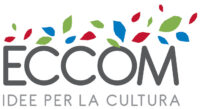Short-term orientation can be defined as the value for which only the present, the immediate result is essential, to the detriment of the traditional point of view, in which the relativism of moral or intellectual values is important. Long-term orientation favours questions about why rather than what and how, and favours tradition over the immediate result. In cultures where long-term orientation prevails, dominant values are caring for others and conservation, people are warm and relationships are valued; knowing that everything is relative, children are taught to ask “why?”; work is an opportunity to express oneself and pay attention to one’s origins and history. In cultures where short-term orientation prevails, people engage in everyday tasks without wondering whether they are good or bad; they appreciate firmness and stability in others, teach children to ask “what?” and “how?”, and live one day at a time; work is a task to be carried out day by day.
